Professor Eric Klopfer and his team focus on the improvement of student learning through “the development and distribution of games informed by research in the learning sciences, creative design, and technical development.”
Eric Klopfer

Klopfer’s research focuses on the development and use of computer games and simulations for building understanding of science, technology, engineering and mathematics. He works on mobile and onlines games designed to build understanding of scientific practices and concepts as well as critical knowledge. In the realm of simulations, Klopfer’s work focuses on students understanding complex systems through, and connecting computer programming with, scientific practice, critical thinking, and real-world issues. He is the co-author of the books, “Adventures in Modeling“, “The More We Know“, as well as author of “Augmented Learning,” Klopfer is also the co-founder and President of the non-profit Learning Games Network .
PHOTO INSPIRATION: Over the years Eric has collected many turtles, the iconic figure from the Logo language lineage dating back to Seymour Papert. He grew up in the age of Logo and was inspired to learn programming at an early age. The turtle continued on in Mitch Resnick’s work, and the turtle remains at the heart of Eric’s continuation of that work in StarLogo and its successor, Toolblox.
Scot Osterweil
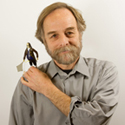
Scot Osterweil is the Creative Director of the Education Arcade and a research director in the MIT Comparative Media Studies Program. He is a designer of award-winning educational games, working in both academic and commercial environments, and his work has focused on what is authentically playful in challenging academic subjects. He has designed games for computers, handheld devices, and multi-player on-line environments. He is the creator of the acclaimed Zoombinis series of math and logic games, and leads a number of projects in the Education Arcade, including The MIT/Smithsonian Curated Game(environmental science), Labyrinth (math), Kids Survey Network (data and statistics), Caduceus (medical science), iCue (history and civics) and the Hewlett Foundation’s Open Language Learning Initiative (ESL). He is a founding member of the Learning Games Network .
PHOTO INSPIRATION: Ben Franklin was the greatest mind of the 18th century, a self-taught scientist and statesman. He represents nothing if not playfulness, curiosity and the power of self-directed learning.
Susannah Gordon-Messer

Susannah is a content manager for The Education Arcade. She is a content expert for high school math and science and works on developing game content as well as teacher materials that accompany games. She manages school and teacher partnerships, prototype testing with students, professional development and school implementations. Prior to MIT, she was a postdoc with the Strategic Education Research Partnership (SERP) and developed curriculum for science literacy at the middle school level. Susannah worked for the Posse Foundation as the mentor for the inaugural group of Science Posse students and has volunteered designing programs at The Discover Museums in Acton, MA. She holds a PhD in Biophysics from Brandeis University and was a high school math teacher with Teach for America in Warrenton, NC.
PHOTO INSPIRATION: Susannah acquired “Math Duck” from a student during her time with Teach for America and he’s been with her in and out of labs, classrooms and even the occasional conference presentation. He is her reminder that she is a science nerd at heart and always enjoys working with teachers and students.
Jennifer (Jen) Groff
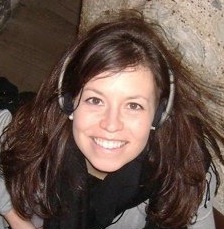
Jennifer is an educational engineer and researcher whose work focuses on redesigning learning environments and experiences through educational innovations and technologies. Currently, she is the VP of Learning and Program Development for the Learning Games Network , a non-profit spin-off from the MIT Education Arcade and Univ of Wisconsin-Madison’s Games+Learning+Society program, which focuses on the leading edge of educational game design. She is also the co-founder of the —an international NGO dedicated to redesigning the general curricula for the 21st century. At LGN, she leads their work in assessment in games, and is the executive producer on —an online knowledge base and community of practice for game-based learning in education. Jennifer has a B.S.E. in Elementary Education from Millersville University, an M.Ed. in Educational Technology from the University of Delaware, an Ed.M. in Specialized Studies from the Harvard Graduate School of Education, and was a 2009 Fulbright Scholar to the UK.
Wendy Huang

Wendy Huang is the program manager for the Scheller Teacher Education Program. Her current work includes supervising undergraduate student-teachers, assisting instructors of teacher education courses at MIT, developing computer programming and modeling/simulation curricula, and leading teacher workshops. Prior to MIT, she worked for three years on the design, pilot, and publication of several middle school math, engineering, and science curricula (Building Math, Science Corps) at the Museum of Science (Boston) and Education Development Center (EDC) and was a Teach for America math/science teacher for four years at a public junior high school in the South Bronx, NY. She has a M.S. degree in Teaching from Pace University and a B.A. degree in Computer Science from Wheaton College (IL).
PHOTO INSPIRATION: Apples = Teachers! Wendy finds joy and ongoing inspiration for her work when she interacts with pre-service student-teachers and in-service teachers about their love of math/science and passion to impact students’ lives through teaching and mentoring. She has a particular interest in improving education for underprivileged students in high-poverty areas and also in advocacy for more and better opportunities for all students to learn computer science, especially those from underrepresented groups.
Daniel Wendel
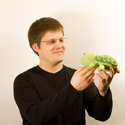
After taking several MIT STEP classes as an MIT undergraduate, Daniel Wendel officially joined MIT STEP as a Master of Engineering student under Prof. Klopfer’s supervision in 2005, taking on the task of rewriting StarLogo TNG’s terrain system and much of its 3D rendering system. After graduation and a brief stint as a Systems Engineer in the defense industry, Daniel returned to STEP as a staff member to help lead the then-newly-formed Imagination Toolbox project, which aims to increase student interest and ability in STEM subjects through the use of computer tools like StarLogo TNG. Daniel continues to work as software developer, curriculum designer, and research associate for several projects in STEP/TEA, and also takes his role as a student supervisor and mentor very seriously. He’s worked closely with over 30 UROP and M.Eng. students who’ve contributed in countless ways to the STEP/TEA team.
PHOTO INSPIRATION: The Turtle is the central actor of Logo, a pioneering computer language that gave elementary school students the opportunity to become computer programmers. This particular turtle, though, is a hand-made gift from Daniel’s wife, who is a better programmer than he is.
Jason Haas
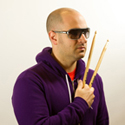
Jason is a Research Assistant and PhD candidate in The Education Arcade and the Center for Mobile Learning through the MIT Media Lab. His research focuses on designing interesting multiplayer experiences (for learning and otherwise) and evaluating them in context. His interests include media, play, learning, collaboration, information flow, and the workings of organizations. He holds a B.A. in Film Studies from Wesleyan University and a M.Ed. from the Harvard Graduate School of Education’s Technology, Innovation and Education program. He is co-author of, “The More We Know” which chronicles the lessons about new media, old media, and education derived from iCue, an NBC-MIT joint venture into interactive learning.
PHOTO INSPIRATION: Jason chose his Rock Band™ drumsticks, not just because he was able to each himself to play the drums through that game. He loves rhythm, collaboration, performance, and transgression in digital games, all of which that game has in spades. Call him, “The Ace of Spades.”
Caitlin Feeley
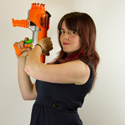
Caitlin is currently managing projects for the Center for Mobile Learning, and is particularly interested in alternate reality games, STEM topics, and playful learning. She has 10 years of experience in educational research and development, primarily focused on informal learning experiences for underserved populations and young adolescents. She was the project manager and co-designer for Vanished, a transmedia science mystery game/event co-developed with the Smithsonian, which reached over 6,500 players. Past projects have included multimedia instructional materials for the NSF-funded “Kids Survey Network,” a program teaching statistics and data analysis to middle schoolers. She also co-designed the award-winning financial literacy games “Farm Blitz,” and “Bite Club” for Doorway to Dreams Fund. Caitlin holds a master’s degree in Technology, Innovation and Education from Harvard University.
PHOTO INSPIRATION: Caitlin got her start in game development through live action roleplaying games, and still makes time to spend her weekends chasing down zombies with NERF guns like this one. Her gun reminds her that a great game should engage us physically, emotionally, and intellectually. It also reminds her to always be prepared for zombies.
Ilana Schoenfeld

Ilana manages the development of student curricula and teacher materials that combine agent-based models and complex systems thinking to facilitate biology learning. She is particularly interested in ‘translating science to story’ (via various media) to bring abstract concepts to life for diverse audiences. Over the course of her career, she has worked as an executive science editor, distance-learning program evaluator, museum exhibit developer, and content developer for earth and life science-focused educational media for K-12 audiences and the general public. Ilana holds a Master’s in Environmental Science/Social Ecology from Yale University and a Bachelor of Arts in Latin American History from Brandeis University.
PHOTO INSPIRATION: Ilana believes inspiring wonder is a powerful way to engage students in learning. She is often amazed by interconnections and patterns she sees in nature. These stuffed whale-fish (on-loan from her niece, Sophie) represent agents in a much larger stuffed-fish ecosystem!